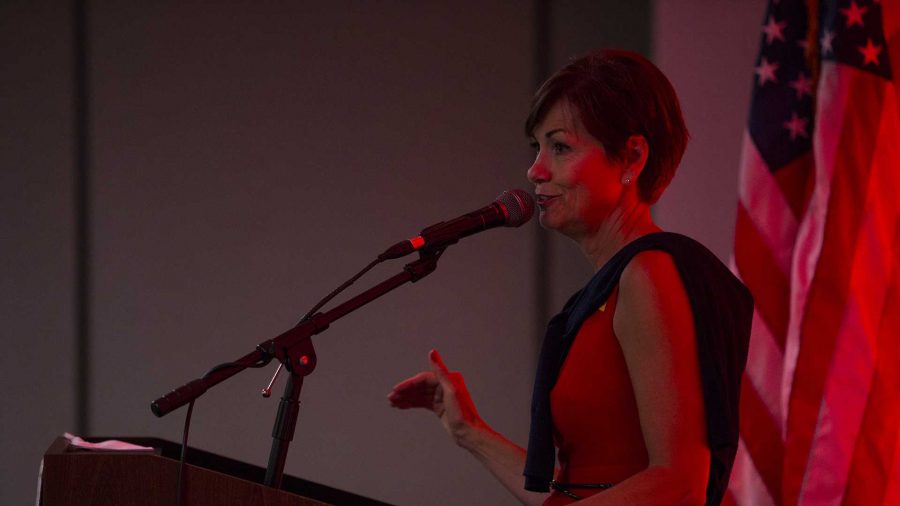According to the International Labour Organization, there is an estimate of 20.9 million cases of human trafficking, or as they call it “modern day slavery,” globally. This is approximately a $150 billion business worldwide.
It’s easy for one to believe that their country is an exception to an issue this extreme. For an issue that is so commonly known in Third World countries, it’s difficult to understand that this is happening in our own backyard.
In a press release from Sept. 19, Gov. Kim Reynolds announced an initiative for the state to begin training hotel and motel employees to know when there may be a situation of human trafficking. The Network Against Human Trafficking and Slavery estimates that around 50 percent of all human trafficking cases takes place in hotels and motels.
RELATED: Iowa human-trafficking laws better, need work
Iowa is in the crossroads of a key trafficking route, I-80, that extends from California to New Jersey. This route crosses through other Midwest states: Nebraska, Illinois, Indiana, and Ohio.
While there is still some work that could be done to protect the rights of those trafficked in Iowa, other Midwestern states should begin these hospitality-training programs as well.
I am from Chicagoland, and I was shocked to see how close to home this problem hits. Chicago is one of the largest locations for human trafficking in the United States, which doesn’t fall too far from Iowa. According to nonprofit organization New Name Ministries, 15,000 to 24,000 people in the Chicagoland area become victims of human trafficking each year.
Illinois has passed acts on the federal level to combat human trafficking, such as making any child under the age of 18 immune from prosecution for prostitution, known as the Illinois Safe Children Act. Other federal acts have been passed in the state to help with funds, but there is little evidence of domestic efforts.
RELATED: Hotel staff train against trafficking
This is one of many national problems that often gets swept under the rug. People too commonly think that because this is an issue viewed on such a huge global scale, there is little they can do to contribute to efforts. This issue is unfortunately overshadowed far too often.
The reality is, this is something that can happen to your child, even in a rural state such as Iowa. It’s time to stop ignoring something that breaks apart families every year. Along with the anti-trafficking network, there is also the Junior League of Des Moines, which reports that on any given day, there are around 150 children in Iowa sex-trafficked. To report tips or request services, people can call the National Human Trafficking Resource Center at 1-888-373-7888.
As cliché as it sounds, change starts at home, and the problem is more local than people think. In order to make a difference at a national level, something needs to be done on a smaller scale first.











